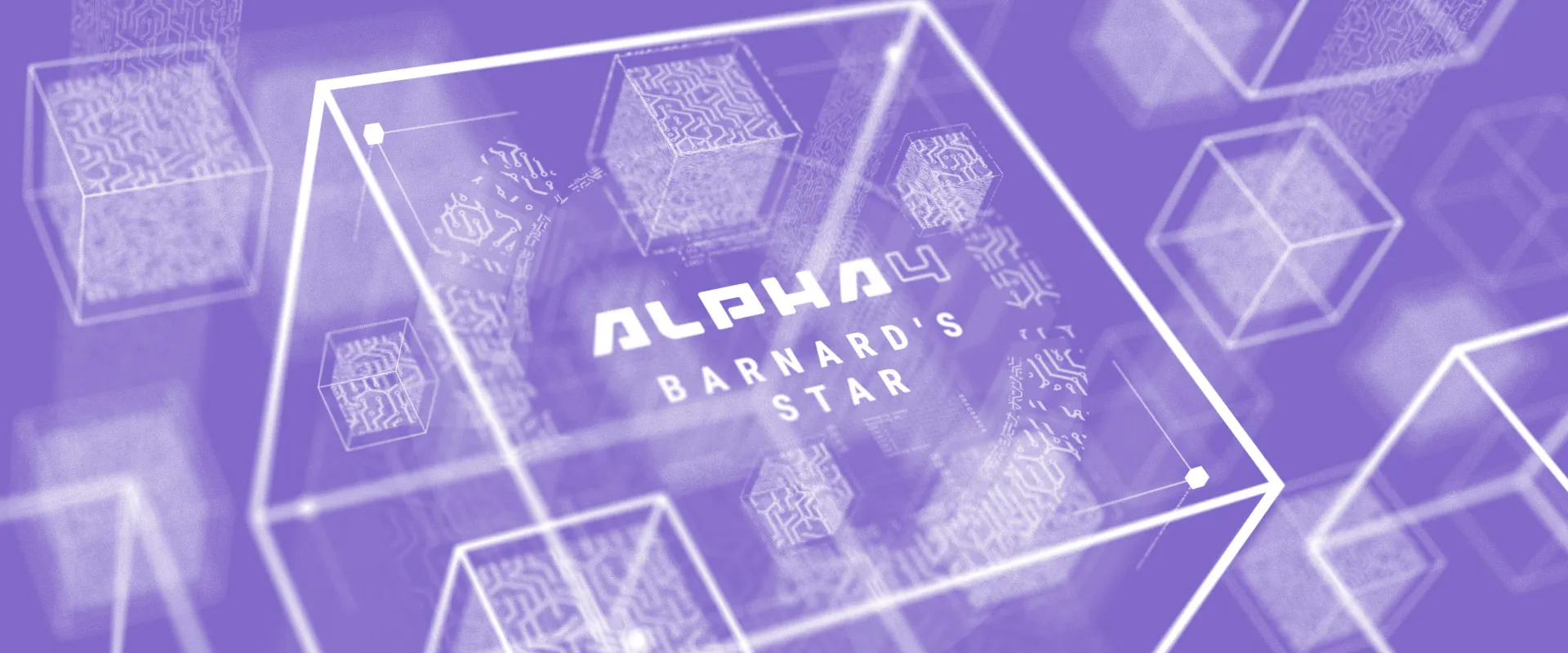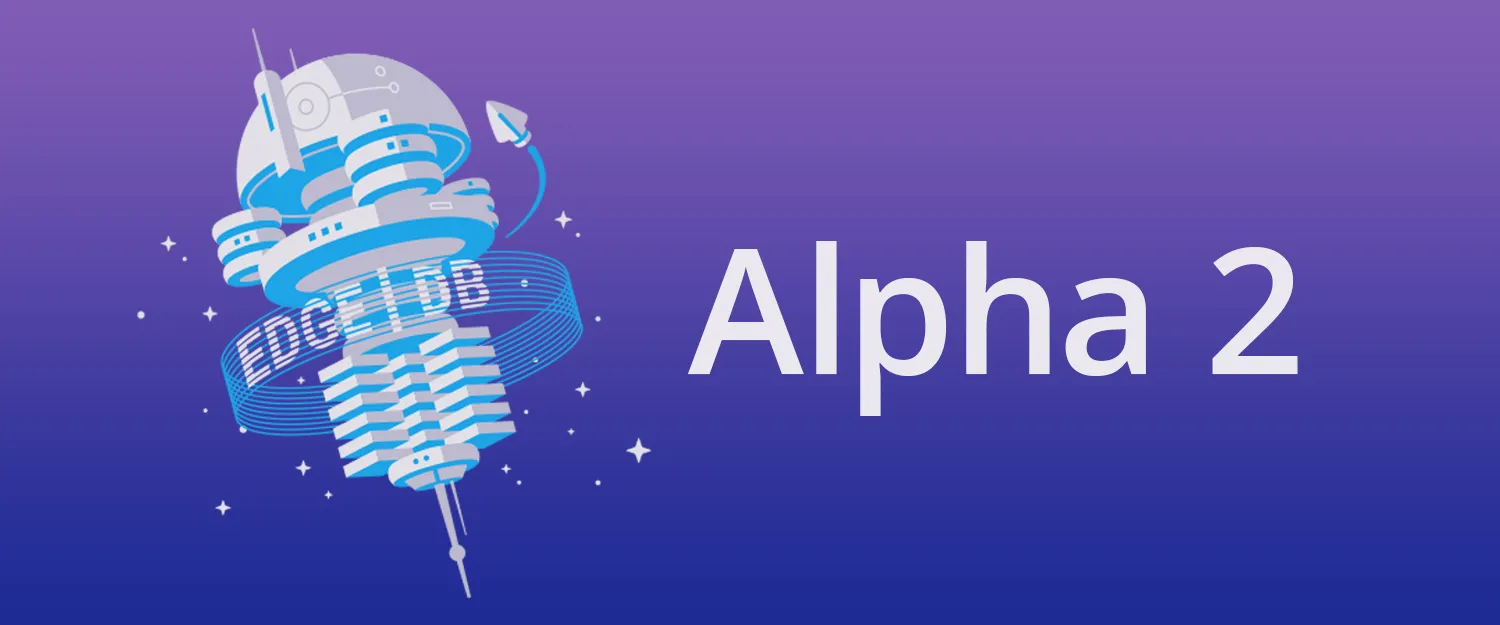After five months of work since Alpha 2, we are happy to announce the immediate release of EdgeDB 1.0 Alpha 3 “Proxima Centauri”. You can download it in a number of ways and use a new interactive tutorial to test it out without the need to install anything.
There’s been an enormous amount of work around the database engine and we’re also busy making it easier for you to learn and use EdgeDB. Let’s go through some highlights of the release.
What’s EdgeDB
EdgeDB is an advanced open source relational database based on PostgreSQL. The project aims to give developers and data engineers a highly efficient and productive database technology while addressing the shortcomings of SQL and its surrounding ecosystem:
-
high-level data model and type system;
-
a powerful, expressive and extensible query language that allows working with complex data relationships easily;
-
first-class support for schema migrations;
-
support for converting arbitrary strictly typed data to and from JSON via a simple cast operator;
-
out-of-the-box interoperability via REST and GraphQL.
A new release calendar
Before we talk technical details, let’s talk about scheduling releases. Historically we’ve always had big plans for each release and this is why they have been so rare. Recently we came to the conclusion that more frequent and granular releases will help us communicate our direction better, and most importantly will get the latest features and fixes to the hands of our users faster.
With this in mind, we are transitioning to a 6-week release cadence for minor versions, at the moment looking at our alphas, betas, and release candidates. While this necessarily means the future releases will be smaller, i.e. more incremental, we feel like the rate of important changes will in fact increase. We’ll have more opportunity to share it with you as well.
By the way, we like the idea of making releases a little personal and so we decided to pick codenames for them. We start in our immediate neighborhood, looking at the closest star to our own Sun.
To be clear, as much as we’d like that, it’s not our intention to crank out a major EdgeDB version every six weeks. The increased release cadence is meant for minor releases.
Rust Inside™️
As a team, we’re quite invested in Python. It enabled us to iterate on EdgeDB over the past decade, sometimes making sweeping design changes relatively quickly. We’ve been quick adopters of Python 3 and in fact Proxima Centauri is the first EdgeDB release to use the latest version of the language, Python 3.8, internally.
Python 3.8 and our internal optimization efforts led to some mild performance gains. However, we are aware that for certain heavy-lifting tasks like our query compiler, we won’t be able to provide the level of efficiency that we need using Python alone. We’ve been heavy users of Cython for some of those “tight loops”. And while we still have plenty of Cython code in our codebase, we found that a relative newcomer to this programming language niche looks excitingly promising and provides some unique advantages.
Starting with Proxima Centauri, the EdgeDB server ships Rust code for some of its functionality. The first bit moved to Rust is the query tokenizer. Writing performant C extensions with Cython is much easier than using the Python C API directly: it makes reference counting automatic and provides native access to Python objects. Rust takes it a step further. When writing Python extension in Rust, you’re sure that Global Interpreter Lock (GIL) is handled properly, and any access to a Python object is memory safe. Compared to Cython, Rust extension code is more verbose as it provides more explicit type conversions and error propagation. That verbosity is generously compensated by Rust’s rich type system that helps handling complex tasks.
We’re also using Rust in another important piece of the puzzle: the EdgeDB
command-line tools. Having a single-file standalone binary compiled with
rustc enables us to ship them to users with less effort and allows you to
install them faster and connect to EdgeDB servers easier.
It feels like using Rust was a natural choice for us. Our server codebase already relies heavily on Python’s static typing annotations and type checking with Mypy. Rust is a natural extension of this idea with its strong type system. On top of that, it allows zero-cost abstractions which we find very elegant.
The lexer and the command-line tools are just the beginning. We’ll report more as our experience with Rust increases.
Try out EdgeDB without installing anything
Installing a database isn’t very hard these days. That being said, it’s still a process which gets in the way if you only want to try a few queries out. This is why we worked on edgedb.com/tutorial, an interactive tutorial where you fire up EdgeQL queries and they are handled by actual on-demand EdgeDB servers.
The tutorial is designed to introduce you to the database and the query language. Spend 10 minutes with it and let us know what you think!
Improved ergonomics of UPDATE
Previously, to update a linked set of objects in an UPDATE statement,
you had to use an explicit UNION operation:
UPDATE Movie
FILTER .title = 'Dune'
SET {
actors := .actors UNION (SELECT Person FILTER .name = 'Javier Bardem')
};The new += update operator in EdgeDB Alpha 3 makes it shorter to write
and easier to read:
UPDATE Movie
FILTER .title = 'Dune'
SET {
actors += (SELECT Person FILTER .name = 'Javier Bardem')
};The task of removing entries from a linked set in an UPDATE also got
much easier with the new -= operator:
# Remove the high-priority label from Issue #100.
UPDATE Issue
FILTER .number = 100
SET {
labels -= 'high-priority'
};Laying groundwork for improved migrations
We continued the work toward our goal of providing support for elaborate schema and data migrations as the first-class feature of EdgeDB. While there are no user-facing changes in this release yet, the backend implementation for schema reflection and introspection has been rewritten from scratch to use autogenerated EdgeQL instead of hand-written SQL queries. The result is a much more reliable and efficient schema introspection mechanism.
Summary
We’re excited to share Proxima Centauri with you! It’s a release that provides foundation for some cool features we’re working on right now. We hope you like it!
As usual, the change log provides a detailed story of the changes in this release.
If you have any questions, feel free to join our community chat, or ask in form of a bug report or a feature request on GitHub.
If you’d like to learn more about our tech stack, we recently started a
YouTube channel. At the moment we’re running a series
introducing Python’s asyncio.
For future announcements, you can find us on Twitter.


